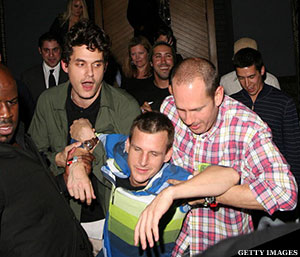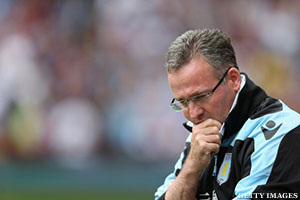
You were so ticked off about the NFL replacement refs that you can no longer make out Commissioner Roger Goodell's features of on your dartboard. In the middle of a Web search for explosives, you have a moment of clarity and stop to weigh your options. One is to stay home and contemplate your problems. The other is to get drunk, start a fist-fight, and drag-race. Which do you think is the better choice?
Botched calls by replacement refs have left a lot of NFL fans depressed. Even with the regular refs set to return, I'm sure there will be calls that will send you into a tailspin. If you're of sane mind you can put the NFL in perspective, but the question of how you handle adversity -- particularly the bigger problems in life that lead to depression -- may surprise you.
To simplify, get out your scorecard and start scoring for "drinking away" or "thinking away" your problems.
A clue can be found in one of my favorite books, Learned Optimism by Martin Seligman. He explains that women suffer from depression more than men at a ratio of 2 to 1 because they ruminate on problems while men find distractions.
Susan Nolen-Hoeksema, who leads the Depression and Cognition Program at Yale University, says, "From a cognitive approach, paying attention to one's negative moods can increase thoughts of negative events, which eventually increases the quantity and/or intensity of negative feelings." In other words, thinking about your problems makes them worse.

That's 1-0 in favor of raising hell.
This might lead you to conclude that reckless behavior is a better approach. Never mind the other guy's face or the people with whom you share the road. Besides, once you come down from your buzz or adrenaline rush, your problem—not to mention the gutterpup in your jail cell—is still there.
Score one for "thinking away" to even things up.
The majority of the time, the problem is your mind. That's why taking your mind off it is often the solution.
That's two-one in favor of "drinking away." But don't fill up that beer funnel just yet.
Alcoholics Anonymous has an adage that there's no problem a drink can't make worse. Trading Aaron Rodgers for Tavaris Jackson on your fantasy team because you're hammered will only put you in a deeper hole. Immersing yourself in fantasy statistics, on the other hand, just might be the perfect way to take your mind off those unspeakable fantasies about Roger Goodell's dismemberment.
The key is choosing a distraction that isn't destructive to you or others. If shopping makes you feel better and you are flush with cash, go for it. If, however, you are depressed about being in debt and unemployed, put that credit card away! It's the same with comfort food. A vat of macaroni and cheese might be the perfect remedy to cheer you up. It only becomes destructive if the very thing you're upset about is your weight.
We'll score this one a draw.

The argument against distraction is that avoidance can turn a simple problem into a train-wreck. Taking your mind off piles of laundry might attract buzzards. Disappearing for a week after a fight with your spouse might be the coup de grâce that gets you kicked out of the house.
Chalk one up for "thinking away" to knot us at two-two.
Before I show you an even better choice, the trick is to differentiate between dealing and ruminating. Complaining or worrying while going in circles is ruminating and leads to depression. Checking in with yourself, recognizing your patterns, and taking action is dealing and leads to a more fulfilling life.
Here's a checklist to use next time you feel depressed:
1. If you can do something to fix or ease the problem, do it immediately.
2. If the problem requires strategic thinking, take the time to come up with a plan.
3. If there's no (more) thinking required, let it go.
4. Find an innocuous distraction.
Getting drunk and fighting may be a better choice for warding off depression than ruminating, but it doesn't mean it's your best choice. Instead, the next time you're down in the dumps, find the right mix of strategic action and non-destructive distraction. If all else fails, consult two of the wiser sages on earth: Ben & Jerry.
-- Greg Dinkin is a Certified Health Coach from the Institute for Integrative Nutrition and the author of three books including The Poker MBA. He explains in his TED talk how he used the power of both mind and body to lose 100 pounds.



